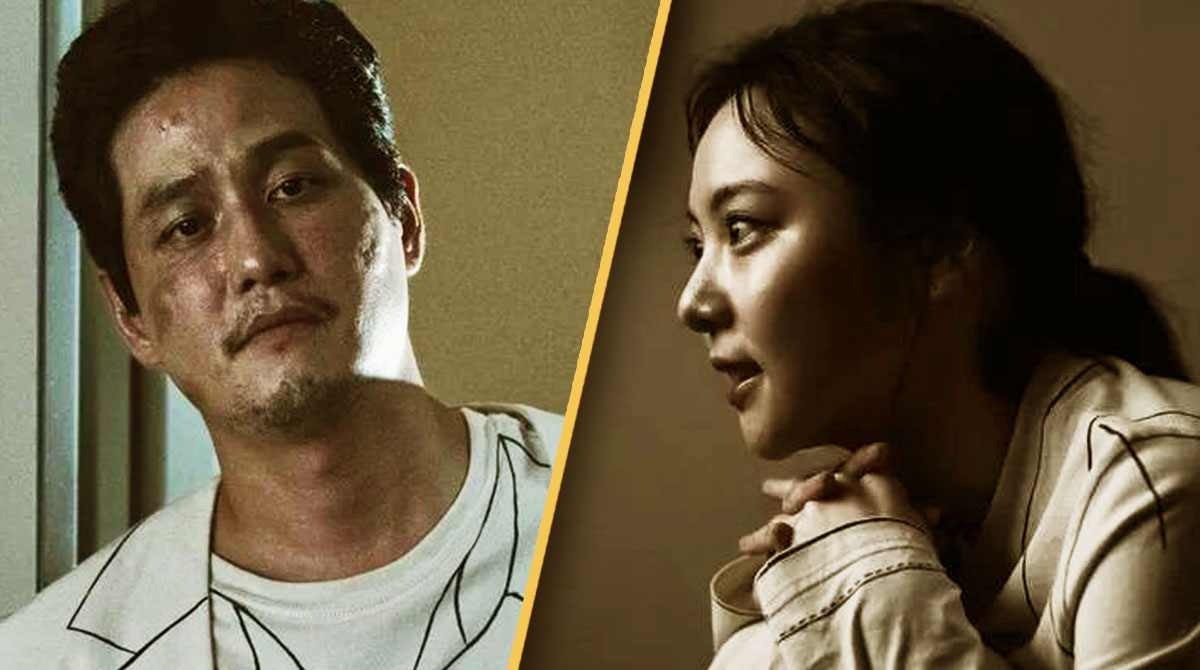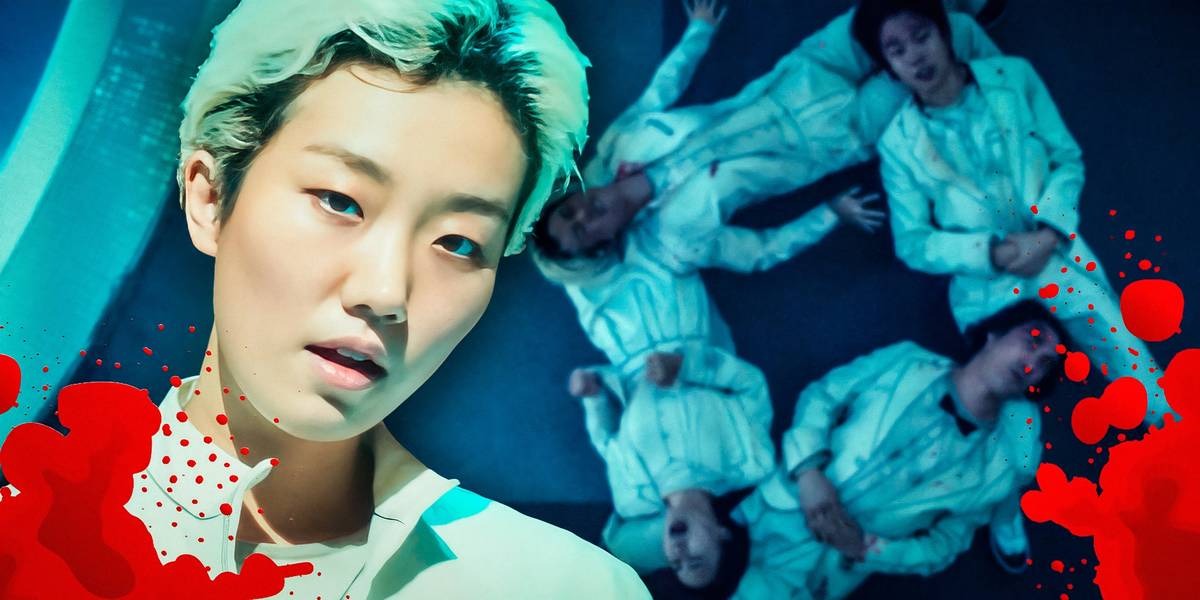Rather than begin with a direct comparison, let’s consider how The 8 Show manages to hold its own within the genre of intense survival dramas. This new Korean series that launched on Netflix on May 17 focuses on a group of individuals forced to endure physical and psychological torture for money.
With their misery broadcast to entertain a hidden audience. Its approach takes inspiration from two webtoons—Money Game and Pie Game—written by Bae Jin-soo. The story centres on eight financially stranded individuals who are lured into a peculiar contest where every second spent in the game increases their potential earnings.

Once they settle into an odd apartment building, each participant soon finds out that they must keep their unseen viewers interested to prolong their time. Their earnings are directly tied to how long they can stay and how entertaining they can be.
Unfortunately, as tensions grow and the harsh conditions of the show reveal themselves, their unity breaks apart, exposing power imbalances that reflect the outside society. Towards the conclusion of this eight-episode journey, the rules start to blur, leaving viewers unsure whether the show has any intention of ever coming to a proper end.
Whether you paused your viewing after the chaotic events of episode 7 or you need a recap of how the series closed, here’s how everything winds down in The 8 Show.
The Unusual Guidelines Behind ‘The 8 Show’
Rather than opening with the game itself, the series introduces a man who’s lost all hope, burdened by debts reaching 900 million won (around $667,000). Just as he prepares to end his life, an unexpected money transfer enters his account, and a limousine arrives.
Taken to a peculiar theatre, he receives an offer: walk away with a little cash, or stay and potentially earn a fortune. Despite recognising how suspicious it is, he agrees. The man arrives in a strange courtyard made to look like an abandoned playground.
He chooses to stay in the 3rd-floor unit and is called “3rd Floor” from then on. Each participant is named based on their floor number, from 1 to 8. Everyone receives only one set of clothes, and anything beyond that—such as furniture or toiletries—must be purchased using their earnings, though everything costs 1,000 times the regular price.
Food is restricted to pre-packaged meal kits and water, with 12 of each supplied daily. A countdown clock visible in the courtyard marks the game duration. Starting with 24 hours on the clock, they must earn more time by entertaining an unknown audience watching through CCTV.
Each minute earns them money, but the show ends either when time runs out or if someone dies. Though the rules may sound straightforward at first, they soon become complicated. The floor one picks determines how much money they earn per minute and how spacious their room is.
Floor 1, occupied by a calm former circus performer, earns just 10,000 won (approximately $7) a minute and lives in a basement-like room. At the top is Floor 8, where a seemingly carefree woman hides a cruel streak; she receives 340,000 won (roughly $350) per minute and stays in a luxurious penthouse.
This hierarchy stirs tension among the residents. As the group attempts to extend the countdown and boost their earnings, it becomes clear that some are planning their actions carefully. 7th Floor and 3rd Floor, for example, hope to delay any shocking behaviour to stretch the show’s value.
Meanwhile, the alliance between the violent 6th and 8th Floor participants quickly steers the game into darker territory.
Power Struggles and Divisions Among Participants
With time, divisions form within the house—lower floors like 1st, 2nd, and 3rd team up against the upper ones like 6th and 8th, with 4th and 5th caught in the middle.
The higher floors begin to rule through intimidation and physical control, with the 8th Floor turning into a brutal leader who torments the lower floors by denying them sleep. Specific plot points are better experienced firsthand, as the constant changes keep tension high throughout the series.
The Closing Chapter of ‘The 8 Show’
During the final episode, the participants from the lower floors finally fight back, with assistance from the 4th and 5th floors. After they bring the 6th and 8th floors under control, the rest agree to try out a plan from the 1st Floor.
His idea is to switch apartment units so the ones who used cruelty to maintain power can be pushed down to a lesser status. Achieving this, however, comes at a huge cost: a payment of 1 billion won. After raising the funds, he receives a disappointing shock—the money only buys instructions for how to change rooms.
To move to the penthouse, he would have to pay as much as 34 billion won. For perspective, that’s almost as much as the grand prize in Squid Game. Having missed their chance to gain real leverage, the group agrees to let the clock run out and exit with whatever they’ve earned.
2nd Floor proposes that they combine resources later to pay 1st Floor his billion won. But the plan arrives too late. Emotionally shattered and feeling betrayed yet again, 1st Floor snaps. Drawing on his past as a circus performer, he ties everyone up and begins a tightrope act, wandering across the courtyard in a hallucinated escape.
He eventually climbs the artificial sun, a projector on the ceiling, and causes a fire when it falls. He then falls into the flames. The others try to rescue him but find the doors still locked. As the 1st Floor’s act gains audience interest, over 200 hours are added to the countdown.
While 2nd Floor hits the door and 3rd Floor screams into the intercom, 1,000 more hours are added to the clock. It’s now clear—the show never intended to stop after someone’s death.
Breaking Free From the Surveillance
Angered by this revelation, the 3rd Floor begins smashing all the surveillance cameras. The 2nd Floor joins him. While they do this, 8th Floor weeps, not wanting to leave the show—a moment that firmly places her among the scariest characters in Korean drama history.
Once nearly all cameras are destroyed, a hidden chute opens, exposing a final functioning camera. 3rd Floor destroys that one too. The clock finally reaches zero, and the doors open at last. But it’s already too late for 1st Floor.
His last words express deep regret: he wished to rise above his circumstances but feels he reached too far.
Life After ‘The 8 Show’: Where Each Player Ends Up
When 3rd Floor leaves the building, he walks into the same stage where it all began. Although the speakers blast artificial applause, there’s no one watching. A simple envelope awaits him with a message: “Congratulations.

The prize money will be wired to your bank account.” As he finishes reading, red curtains fall and “The End” lights up on the screen. Returning to normal life after two and a half months, 3rd Floor realises that nothing around him has changed.
People seem unaware or indifferent to the fate of the eight missing contestants. Physically and mentally drained, he spends time trying to rest, even attempting suicide again, while wondering if everything he endured was real.
But one thing confirms the experience: his bank account now shows over 1.5 billion won, though half was deducted due to the damaged cameras. Gradually, he pulls himself together and uses part of his winnings to plan 1st Floor’s funeral.
With help from billboard messages across Seoul, some other players show up too: 2nd Floor, who had co-signed a hospital bill for an injured coworker; 4th Floor, once mocked by her wealthy peers while she worked as a parking attendant; and 5th Floor, a former wife of a doctor who fell victim to fraud by a friend.
The three of them quietly attend 1st Floor’s funeral, each one carrying a piece of sorrow and reflection. As they mourn, there’s no discussion, only shared glances and silence that speak volumes. None of them has the strength or desire to speak about what they all experienced during their time in the building.
Yet, just by being there together, they acknowledge the pain and bond they now share. 7th Floor, who was once the calculating observer in the apartment, uses his prize money in a way that reveals how much the experience changed him.
He opens an anonymous online platform that exposes the harsh treatment and unequal structure of the 8 Show. Though his name never appears, those who were part of the game know it’s him.
His effort isn’t about revenge but about shining light on what people can do to each other under pressure, and how systems can trap people in cycles of suffering for the sake of spectacle. 6th Floor’s story ends differently. He vanishes after the doors open. No one hears from him again, and his fate remains unknown.
Whether he started a new life in hiding or faced his reckoning is left open. But his violent actions during the show linger in the memories of the others. He played a major part in the horror that was revealed within those walls.
As for 8th Floor, her end is the most chilling. She was the one who enjoyed the game the most and begged not to leave. After the show’s conclusion, she’s kept in a mental health facility. Her behavior remains unstable, and she constantly repeats phrases from her time on the show, as if she never truly left the game.
Her obsession with control, violence, and the attention of the hidden viewers became a part of her. She’s not just broken by the experience—she’s trapped in it, mentally and emotionally. Though the remaining contestants receive large amounts of money, the toll of what they went through is not something they can spend away.
The wounds go deeper than what anyone outside the show can understand. Even with the prize in hand, they are burdened with guilt, trauma, and memories of a place that exposed their darkest sides and pushed them past their limits.
Through these characters, The 8 Show ends on a heavy but thoughtful note. The series doesn’t celebrate the money or the survival. Instead, it leaves its viewers to think about the cost of entertainment that feeds off pain, and whether any amount of wealth is worth losing your soul and peace of mind.



